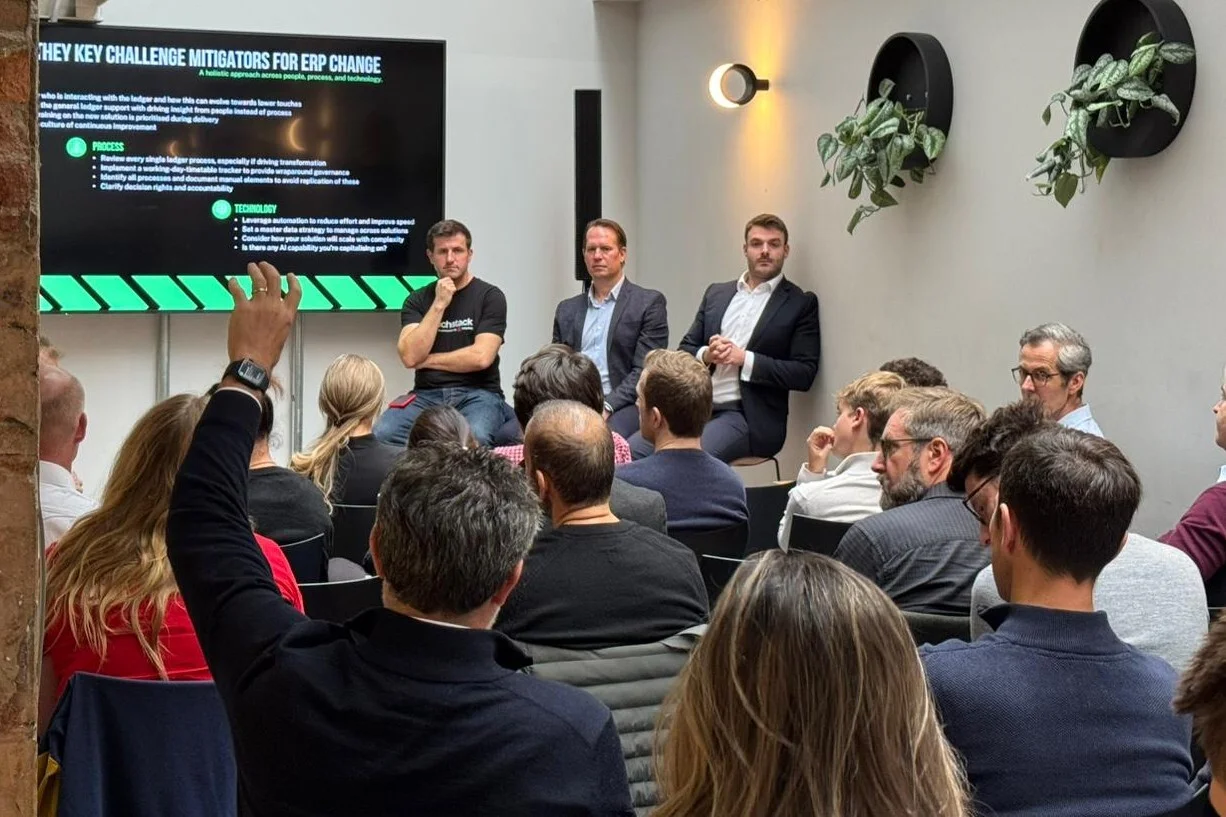As Q2 comes to a close and we reach the halfway point of the year, this is an ideal moment to reflect on the fundraising momentum built since the end of Q1.
In the UK, start-up investment has been steadily gaining pace: April saw £385M invested into the start-up ecosystem, rising to £430M in May, and climbing further to £461M in June. This upward trajectory suggests a strong foundation heading into the second half of the year, with investors continuing to back high-potential ventures.
In New York, investment activity saw a slight dip after peaking in April with $882M invested. Funding declined to $691M in May, before rising up slightly to $705M in June, showing that investor interest remains resilient despite earlier fluctuations in Q2.
Keep reading to get a breakdown of some of June's notable deals and the main investors that backed these exciting raises, all thanks to PitchBook's research.
United Kingdom

In June, 36 companies across the Seed - Series B tech space successfully secured funding from 160 investors, who collectively invested over £460M into businesses across the UK, with the highest deal receiving nearly £100M.
Highest Capital Investment
June proved to be a vibrant month for early-stage funding across the UK, AI & Machine Learning dominated the funding landscape, closing 15 deals and securing an impressive £231M in funding. Despite a modest deal count, Big Data start-ups attracted significant capital, having secured £120M across 3 successful deals. SaaS continued to be a reliable bet for investors, who allocated £113M towards this industry in 10 deals.
To highlight these thriving sectors, we’re excited to recognize a few standout companies for their impressive fundraising milestones:
- PhysicsX, a developer of machine learning applications to enhance physics simulations in physical design and engineering, has secured the highest amount of funding this month, a whopping £99.9M in their Series B funding round 🎉.
- Metaview, designers of Artificial Intelligence agents that assist with various stages of the hiring workflow, have received £26M in their Series B round.
- Maze, a security platform that utilizes modern AI for decision-making rather than relying on pre-defined logic, has received £18.6M in Series A funding.

Notable Investors
As companies grow and scale, the role of investors becomes even more critical. Beyond funding, these partners bring deep sector expertise, operational guidance, and networks that help companies navigate the complexities of rapid growth. The right investors can accelerate market expansion, support key hires, and prepare scale-ups for future rounds or exits.
Here’s a look at some of the investors playing a pivotal role in scaling the next generation of high-growth businesses:
- AlbionVC, providing funding to Labrys and OpenTrade.
- Fuel Ventures, backing Blocktype and Glyde in their Seed rounds.
- Plural, supporting Labrys and Metaview in their later stage funding rounds.
Funding Stages
As a community deeply rooted in early-stage innovation, we place a strong emphasis on the Seed to Series B journey as each stage plays a crucial role in shaping a start-up's growth trajectory.
Here's how the capital allocation looked across the different funding stages across Seed - Series B:

- Series B attracted the largest share of capital, accounting for 44.22% of total investment. Later stage rounds typically fund major expansion, whether geographic, product-based, or headcount-related, making them capital-intensive but lower risk compared to earlier rounds.
- Close behind, Series A rounds received 43.16% of the total capital, typically funding product-market fit, building out core teams, and accelerating go-to-market strategies. The near-parity with Series B investment implies a healthy pipeline of companies making the leap from start-up to scale-up.
- Seed funding accounted for just 12.61% of the capital allocated, a noticeably smaller slice. This is consistent with broader trends where seed rounds are generally smaller in size and carry higher risk. However, despite the lower percentage, Seed investments remain essential for fostering innovation and identifying the next wave of high-growth ventures.
Through Zanda’s Lens
Zanda's Co-Founder Andrew Waters shared his thoughts on the UK funding landscape and the hiring opportunities in the current market:
In the last quarter, we have seen some consistent momentum in the flow of capital into the UK’s early-stage ecosystem, which is a positive sign moving into the second half of the year. More predictability in the funding market is likely to provide more confidence to founders, but also highlights the acute need for finance leaders who can bring clarity to growth plans, partner effectively with investors, and lay the groundwork for sustainable growth.
Summary
June’s numbers highlight a clear trend: investors are increasingly backing companies beyond the earliest stages, focusing on businesses with validated models and scalability. AI and Machine Learning dominated the landscape, both in terms of capital raised and deal activity, whilst Series B rounds accounted for the largest share of investment, capturing just over 44% of the total.
The message is clear: if you're building something bold, scalable, and fundable, especially in high-interest sectors, capital is out there. Investors are looking for strong teams, clear traction, and a roadmap to scale.
New York

New York’s early and later stage start-up scene saw $705M of capital being allocated, with 60 companies securing funding from 172 investors, with the largest single deal reaching $62M.
Highest Capital Investment
New York had an equally busy month of investments, with AI & Machine Learning clearly leading the way, having received $406M in funding across 27 deals. SaaS and FinTech followed after, with SaaS securing the second most invested industry spot, having obtained $296M and successfully closed 19 deals. FinTech followed close, with 14 deals providing the industry with an additional $270M in capital.
We would like to spotlight the companies that represent these leading industries:
- Abacum, a financial planning and analysis platform aimed at helping finance teams streamline planning, forecasting, and reporting, has secured the highest deal amount of $62M in their Series B funding round 🥳.
- Traversal, an AI SRE agent platform that analyses logs, metrics, and traces to identify system issues, has received $48M in their Series A round.
- OpenRouter, an artificial intelligence model aggregator platform that provides access to various large language models, has been allocated $40M in Series A capital.

Notable Investors
As we highlighted previously, investors play a crucial role in supporting start-ups as they grow and scale, providing not only invaluable capital but also their guidance and expertise when it comes to scaling a business.
We would like to celebrate these investors for making a real difference in these businesses trajectory:
- Y Combinator, providing capital to Abacum, Arketa, Clara, Extend and Rally.
- Sequoia Capital, backing Crosby Legal, OpenRouter, Traversal and Turnkey.
- Founders Fund, having supported Avantis and Ubyx.
Funding Stages
Investing in businesses between Seed and Series B stages means backing companies when they’re still young and shaping their growth paths, but after they have begun proving their business models.
In June, here is how the invested capital was allocated among the different funding stages:

- Series A received the highest capital allocation at 44.64%, as at this stage companies here have clearer business models and metrics, improving investor confidence, therefore allocating the largest portion here can reflect a strategy to prioritise start-ups with reduced early-stage risk but still substantial upside.
- Series B stages received 31.57% of the total allocated capital, allowing investors to balance risk in their portfolio by including more mature start-ups.
- Seed was allocated the smallest percentage of invested capital 23.79%, possibly due to investors' understanding of the higher risk of failure of these companies. Despite the risk, Seed investments allow backing disruptive ideas and founding teams early.
Through Zanda’s Lens
Dav Masaon, Zanda's New York based Co-Founder, shared his thoughts on how the recent surge in funding is impacting the hiring needs in start-ups:
The surge of investment into New York’s start-up ecosystem, particularly in AI, SaaS, and FinTech, is not just fuelling product innovation, it’s intensifying the demand for top-tier finance leadership. As companies secure larger rounds, especially at Series A and B, investors expect strategic financial stewardship from day one. We’re seeing a sharp uptick in the need for finance leaders who can balance operational rigour with growth-minded thinking those who’ve navigated scale, understand capital efficiency, and can partner with founders to build long-term value.
Summary
New York's investment activity this month highlights a strong investor appetite for innovation, particularly in AI & Machine Learning, which dominated both funding and deal volume.
The distribution of investments across funding stages reflects a healthy mix of opportunity-driven approach, backing Series A for its balance of reduced risk and high growth potential, while still supporting later-stage maturity through Series B and seeding early innovation.




